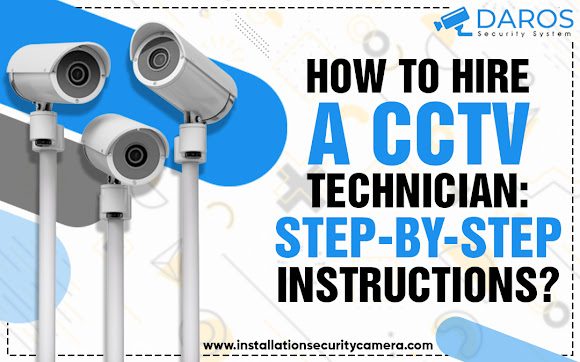How to Monitor Your Miami Property Remotely: Wiring Your Security System
As homeowners
become more and more interested in remote monitoring, the necessity of having a
wired security system installed grows stronger—particularly in a crowded,
high-speed city like Miami. Proper wiring of your security system not only
makes you a more formidable defense against potential break-ins, but it also
bolsters the image and credibility of remote monitoring.
In this blog post,
we'll go in-depth on how to wire your security cameras for remote monitoring,
specifically for Miami homeowners' needs.
Knowing the Fundamentals of Wired Security Systems
It is crucial that
you familiarize yourself with the fundamental elements of a wired security
system prior to beginning the process of security camera installation in Miami. A typical system
comprises:
●
Security cameras (IP or analog)
●
Digital Video Recorder (DVR) or
Network Video Recorder (NVR)
●
Power supply units
●
Cables (Ethernet for IP, coaxial
for analog)
●
Network router or modem for remote
viewing
All the components
need to be well integrated to achieve unadulterated data transmission and
secured remote viewing.
Advantages of Wired Security Camera Installation in Miami
Wired solutions are
optimal due to their:
-
Strong Connection: No signal loss or
interference, unlike wireless installations.
-
Clearer Images: A Better video display is
essential to identify potential threats.
-
Fewer Risks of Being Hacked: Wired systems
have fewer chances of cyber hacking.
Wiring security cameras in Miami also safeguards the system
from problems resulting from Miami's tropical weather-dictated signal
interference.
Step-by-Step Wiring Guide of Security Cameras in Miami
1. Plan Camera
Placement Strategically
Plan locations you
wish to track. Try to target entry points, driveways, pools, and other weak
areas. Opt for camera placement with the highest visibility and least blind
spots.
2. Select the
Proper Type of Camera
Depending on the
type of property, use coaxial cable, analog cameras, or Cat5e/Cat6 Ethernet IP
cameras. IP cameras are generally best for high-definition recording and smart
home integration.
3. Run the
Cables
Drill holes and
route cables from every camera location to the central recording unit. Keep
wiring safely away from electrical wires to avoid interference. Use conduit for
outdoor runs to protect against Miami heat and humidity.
4. Connect to
the DVR/NVR
Connect all the
cables to the respective connectors of your DVR or NVR. Supply a reliable and
single-purpose power supply, utilizing shared circuits where possible.
5. Provide
Network Access for Remote Observation
Plug your recorder
device into the internet using your router. Establish port forwarding and allow
the system remote access via an encrypted app or web interface. Test the
connection on various devices.
Successful Tips for Remote Watching
✔ Utilize cloud backup for redundancy of video storage.
✔ Regularly update firmware for greater security.
✔ Install motion detection alert to remain up-to-date in real-time.
✔ Choose weatherproof cameras suited for Miami’s humid climate.
✔ Test connections monthly to ensure uninterrupted monitoring.
Avoid Common Wiring Mistakes
While wiring
security cameras in Miami, be sure to:
✖ Avoid loosely
secured cables that can get damaged.
✖ Label wires to
facilitate trouble shooting in the future.
✖ Store DVR/NVR in
a well-ventilated, secure place.
✖ Install power
surge protectors to protect power surges during storms.
Last Thoughts
An effective wired
security system provides unmatched dependability, particularly for homeowners
who want to keep an eye on their Miami properties remotely. With firm
compliance with controlled installation protocols and knowledge of security
camera installation nuances in Miami, you can have your system operating
effectively all year round.
Effectively
installing security cameras in Miami not just improves observability quality
but also allows you to sleep in peace—wherever you are.







Comments
Post a Comment